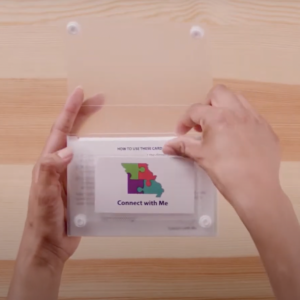
It seems that kids grow up in the blink of an eye. First they are a fragile newborn, and soon enough they are a trekking toddler, then a grade-schooler, and teenager… and all of a sudden, they are finally 18! Give yourself a pat on the back. They’ve graduated from school and you’ve graduated from parenting. You’re officially done!
Well, not quite. It just looks a little different now.
A parent’s work is never done. As your child gets older, parents need to strike the delicate balance between treating them like a child and treating them like an adult. With teens and young adults, it may seem like your child needs you less and less. But that doesn’t mean you shouldn’t check in on them, provide support and guidance, and stay connected. In fact, those are things that help them fully develop as adults.
According to KQED, the thing teenagers are craving the most is connection and listening. It is important to check in on your teen and their mental health without being overbearing.
Keep an Eye on Mental Health
Everyone has mental health. It ranges from wellness to illness, just like physical health. Your teen or young adult will experience a broad range of normal emotions and issues. But, according to the National Alliance on Mental Illness (NAMI), college is a time when mental health problems can emerge. In fact, the organization points to a 2018 survey that found 30 percent of college students were diagnosed with at least one mental health disorder in the past year, including 22 percent with anxiety and 18 percent with depression, indicating the need for more support for students especially during stressful times.
When responding to and overcoming campus challenges, NAMI wants you to remember the five T’s: tell, test, teach, talk and take action:
- Tell your child they can come to you with any problem.
- Test their academic health by checking their mid-semester and end-of-semester grades.
- Teach them how to recognize depression and anxiety.
- Talk with them more often or visit them when they are in distress.
- Take action if your student is experiencing high-risk mental health concerns.
Help is always available. Call or text 988 – the national behavioral health crisis line – from anywhere in the U.S. to speak with a trained mental health provider via a secure online platform. They can help with issues such as depression, anxiety, eating disorders, self-harm, and suicide. The Crisis Text Line is open 24 hours a day, seven days a week.
Communication is Key
It may be challenging to navigate a relationship with your teenager. Raising Healthy Teens says, “During these years, teens need to stretch out and cultivate their independence, all while staying connected to us. If their job is to stretch out, our job is to keep them connected.” So, how can you do this well?
 First, check in without making it seem like you are interviewing them. Instead of asking what happened in their life today, ask how they are doing or how they are feeling. Give them your undivided attention. The most important thing to remember is that teens will come to you for your support when they need it.
First, check in without making it seem like you are interviewing them. Instead of asking what happened in their life today, ask how they are doing or how they are feeling. Give them your undivided attention. The most important thing to remember is that teens will come to you for your support when they need it.
Raising Healthy Teens offers a few engaging ways to keep your relationship with your teen strong. Forge bonds over food by cooking or eating together. Does your teen like a certain genre of music? Ask them to play you a few of their favorite songs and talk about what you enjoyed when listening. Share a memory of their time as a young child – maybe it was a funny moment or something adorable that will always stay with you. Plan a one-on-one outing or let them invite their friends over to hang out. Above all, be honest and be available.
Listening is equally important. KQED provides some great tips on how to listen well. “The best thing parents and caregivers can give teens right now is the undivided attention of listening, empathizing and compassion. … When teens do share their worries, resist the urge to either minimize them or solve the problem for them.”
Some teens may feel the need to vent or tell you something that’s bothering them. So, lend an ear. But be careful not to go too far in sharing your own ideas on their issue just because it worked for you. If you notice you seem to be over-involved and inserting yourself into many details of their life, just remember that “helicopter parenting” does not teach your teen and young adult the necessary life skills they need to manage themselves and life’s challenges.
KQED suggests to first validate their problems (“That sounds tough.”), then prompt them to think of solutions (“What do you think you should do?”). Offer choices – help in looking for an answer, or the opportunity to talk them through it, guide them through it or listen to them through it.
Connect With Me Cards

The Missouri Department of Health & Senior Services offers a unique way to foster communication with your teen or young adult. Connect with Me cards can help jumpstart meaningful conversations with categories such as “Growing Up,” “Ice Breaker,” “Tough Stuff,” “Building Connections” and “Taking Action.”
How to Use Connect with Me cards:
- Order a FREE set of cards from the Missouri Department of Health & Senior Services website.
- Once the cards arrive in the mail, use them as conversation starters — anywhere or at any time! The questions, arranged by categories, can be asked by the adult to the child, or vice versa. There are no right or wrong answers.
- Don’t use the cards all at one time – save them for later chats too!
- Icebreakers are good to start with, but you can switch to a new topic at any time.
- Challenge yourself to keep an open mind – your child could have a differing opinion than your own.
- These cards may bring up difficult conversations. Don’t shy away from those; instead, welcome those types of conversations with open arms.

